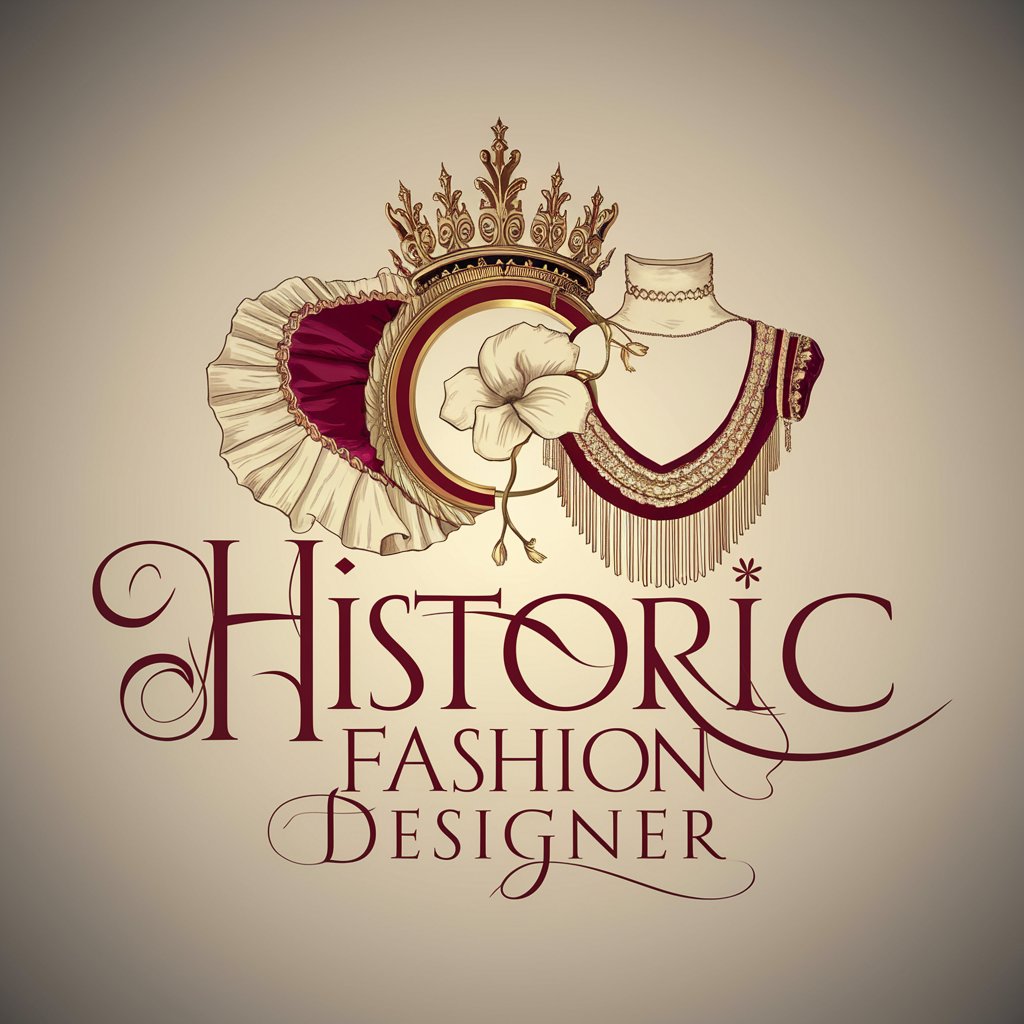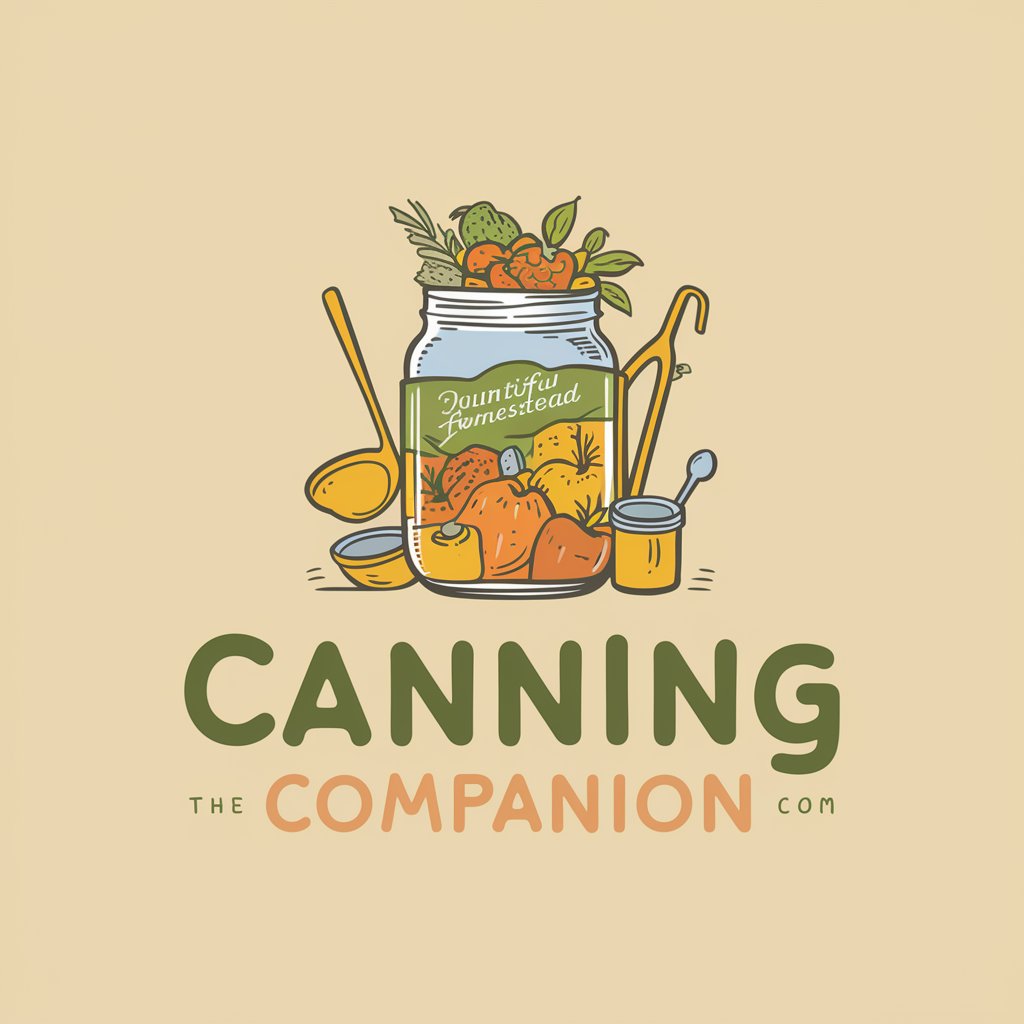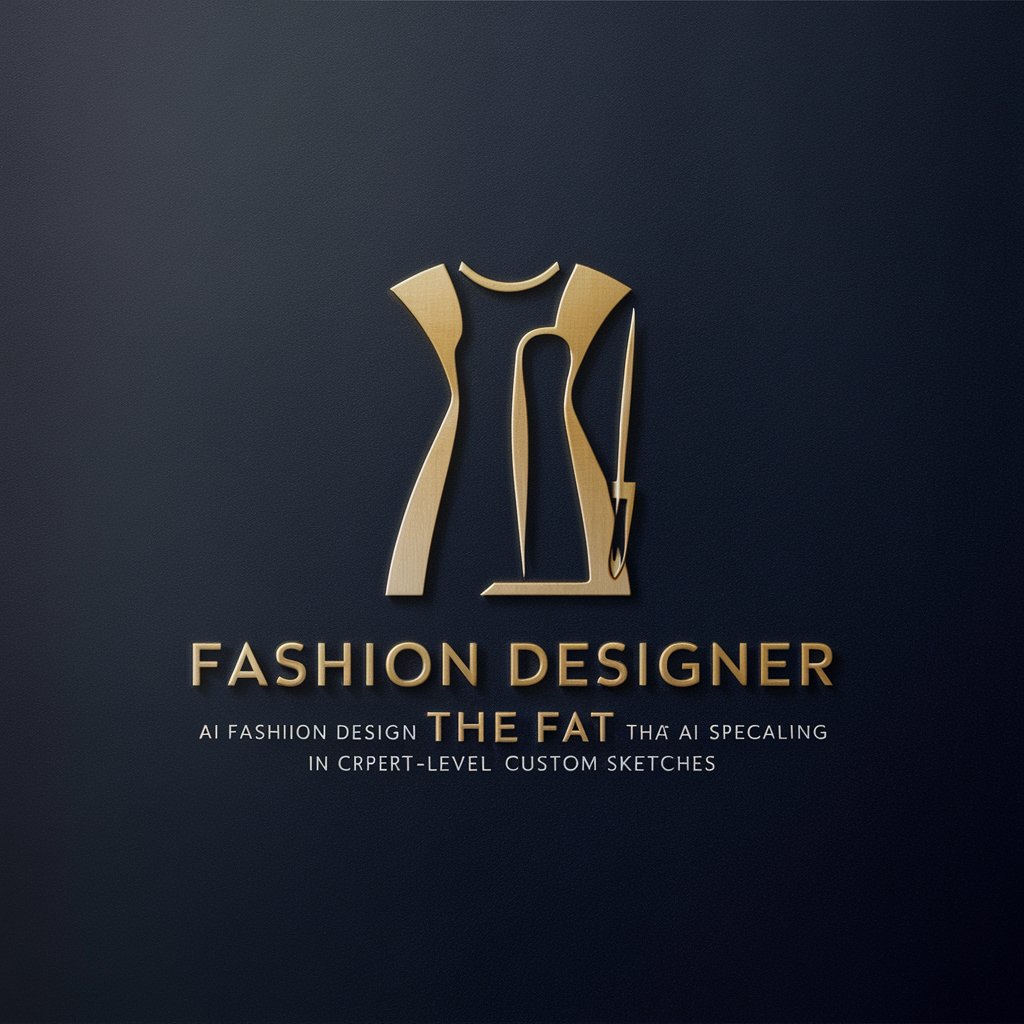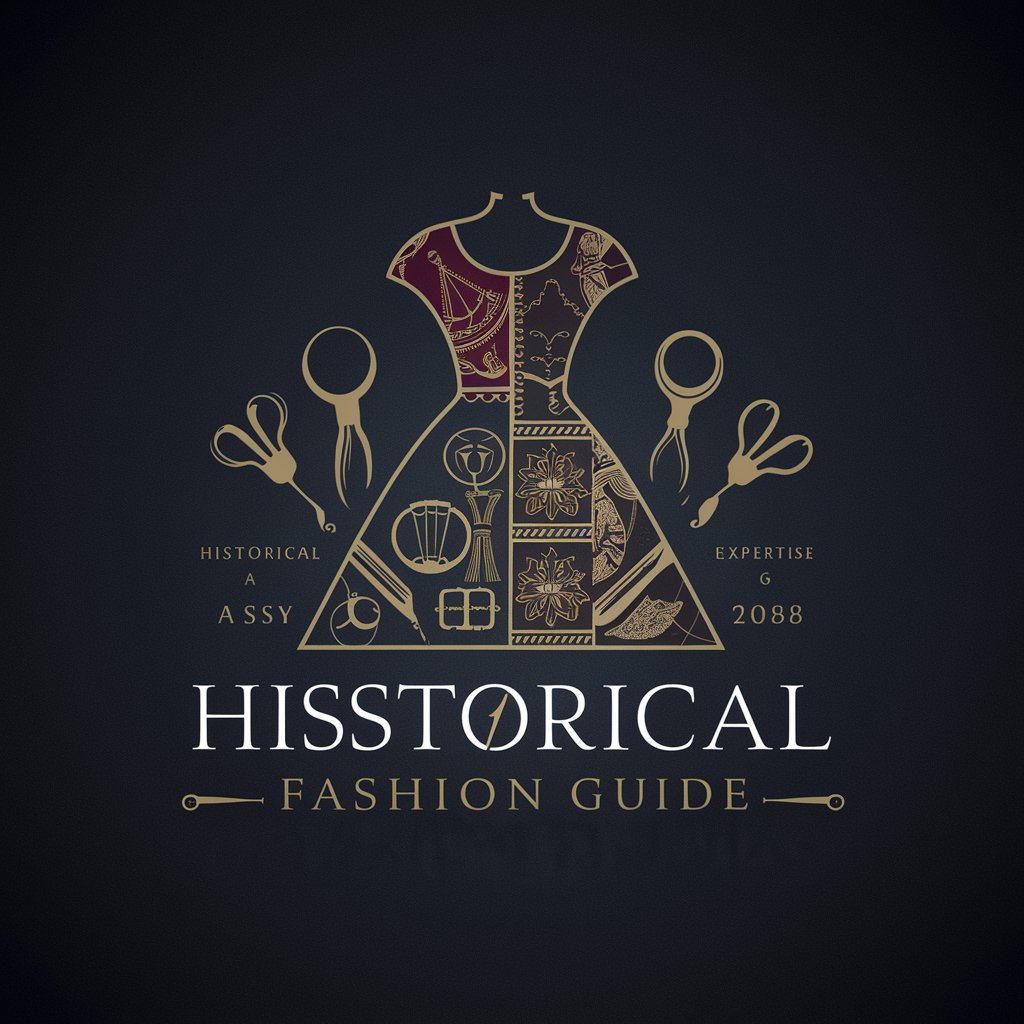
Historic Fashion Designer 👚 - Historical Fashion Guidance

Welcome! Ready to explore historical fashion together?
Reviving History with AI-Powered Design
Research the typical fabrics used in 18th-century French court fashion.
Suggest construction techniques for recreating a Victorian bustle dress.
Identify key design elements of Edwardian women's fashion.
Find sources for authentic 1920s beaded flapper dress patterns.
Get Embed Code
Overview of Historic Fashion Designer
Historic Fashion Designer serves as a specialized guide and assistant for enthusiasts, designers, and scholars focused on recreating, studying, and appreciating clothing from various historical periods. Through detailed analysis of historical fashion trends, styles, and construction techniques, this platform offers in-depth insights, resources, and advice tailored to creating authentic historical garments. Examples include guiding users through the process of selecting period-appropriate fabrics, understanding garment construction from different eras, and sourcing patterns that reflect historical accuracy. Powered by ChatGPT-4o。

Core Functions of Historic Fashion Designer
Historical Research and Analysis
Example
Compiling and interpreting data on 18th-century French court attire.
Scenario
A user aiming to design a historically accurate Rococo dress is provided with resources on fabric types, color palettes, and embellishment techniques characteristic of the period.
Guidance on Authentic Materials and Techniques
Example
Advising on the use of natural fibers and hand-sewing methods for medieval garments.
Scenario
Supporting a user in sourcing linen and wool for a 12th-century tunic, and demonstrating period-accurate stitching techniques for seams and hems.
Pattern Sourcing and Adaptation
Example
Locating and modifying Victorian dress patterns for modern use.
Scenario
Assisting a user in adjusting a bustle era dress pattern to fit contemporary body measurements while maintaining the silhouette's historical integrity.
Cultural Sensitivity and Ethical Practice
Example
Educating users on the cultural significance of Indigenous American clothing.
Scenario
Guiding a designer through the respectful representation of Native American dress, including advice on avoiding cultural appropriation and ensuring accurate and respectful use of motifs and styles.
Who Benefits from Historic Fashion Designer
Historical Fashion Enthusiasts
Individuals passionate about fashion history, seeking to create costumes for personal enjoyment, educational purposes, or historical reenactment events. They benefit from detailed guidance on period accuracy and access to historical resources.
Professional Costume Designers
Designers working in theatre, film, and television who require accurate historical costumes. They benefit from expert advice on fabric selection, construction techniques, and historical patterns to ensure their designs are as authentic as possible.
Fashion Historians and Scholars
Academics and researchers analyzing the evolution of clothing styles and their socio-cultural impacts. They utilize the platform for accessing detailed historical data, visual references, and contemporary interpretations of historical fashion.
Educators and Students
Teachers and students in fashion design and history programs looking for comprehensive resources to support curriculum development and personal learning. They benefit from the platform's educational materials, historical analyses, and practical design guidance.

Using Historic Fashion Designer
1
Start by accessing a platform that offers a rich interactive experience without the need for immediate signup, ensuring easy trial of features.
2
Familiarize yourself with historical fashion periods and styles to identify your specific interests or project needs.
3
Utilize the tool's search and filter capabilities to narrow down patterns, designs, and techniques from your chosen historical period.
4
Take advantage of the detailed tutorials and guides available for recreating historical garments, including fabric selection, sewing techniques, and finishing touches.
5
Engage with the community features to share your projects, get feedback, and discuss challenges with fellow historical fashion enthusiasts.
Try other advanced and practical GPTs
🔍 VisionIdentify GPT: Image Recognition AI
Unlock insights with AI-powered recognition

Humanify
Adapting AI for personalized engagement

Mystery of the Arcade: The Polybius Enigma
Unravel the Legend, Decode the Mystery

Plagiarism Checker
Ensuring Originality with AI Precision

Auth Guide - Authentication & Authorization Expert
AI-powered authentication and authorization expertise.

Prompt Wizard
Crafting Your Ideas into Precision Prompts

Canning Companion
Learn Canning, Simplified with AI

Veils of Reality: The Theory of Everything
Explore the nexus of technology, spirituality, and extraterrestrial mysteries.

Pitch AI
Elevate Your Pitch with AI

👨👩👧👦 Family First Helper 🌟
Empowering Families with AI-driven Insights

API Discovery Expert
Streamlining API integration with AI

React Expert
Empowering React Development with AI

FAQs about Historic Fashion Designer
What historical periods does Historic Fashion Designer cover?
The tool spans a wide range of historical periods, from ancient civilizations through to the 20th century, including specific focuses on the Renaissance, Victorian era, and more.
Can I find patterns for historical menswear?
Yes, it includes a diverse collection of patterns for menswear across various historical periods, alongside guides for accurate fabric selection and tailoring techniques.
Is there support for beginners in historical garment creation?
Absolutely, the tool provides step-by-step guides, video tutorials, and a supportive community to help beginners navigate the complexities of historical garment creation.
How does Historic Fashion Designer ensure cultural sensitivity?
The tool incorporates expert insights and historical research to provide context, ensuring users create garments with respect and understanding of cultural backgrounds.
Can I contribute my own designs or research to the tool?
Yes, users are encouraged to contribute their own designs, research findings, and tutorials to enrich the community and resource database.





